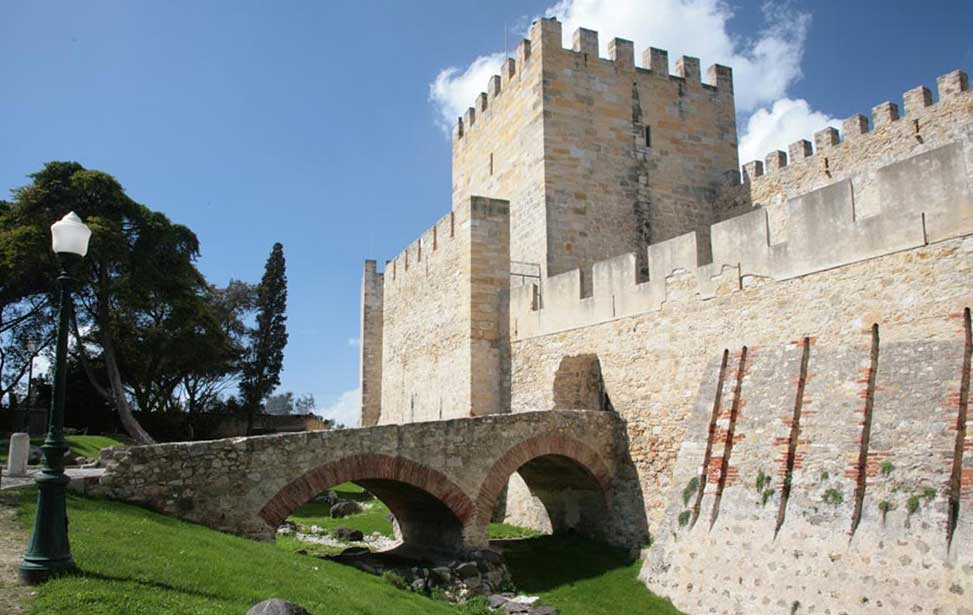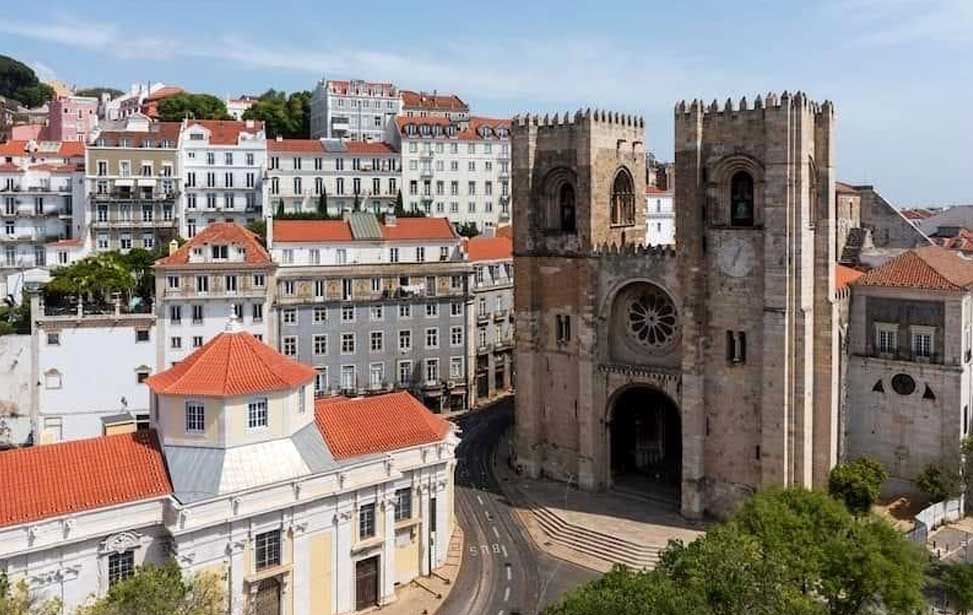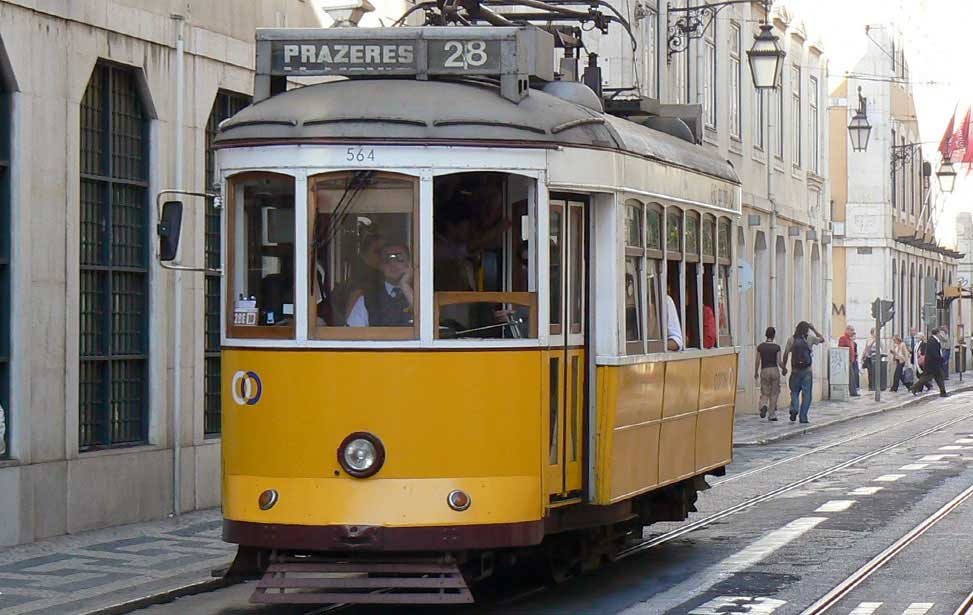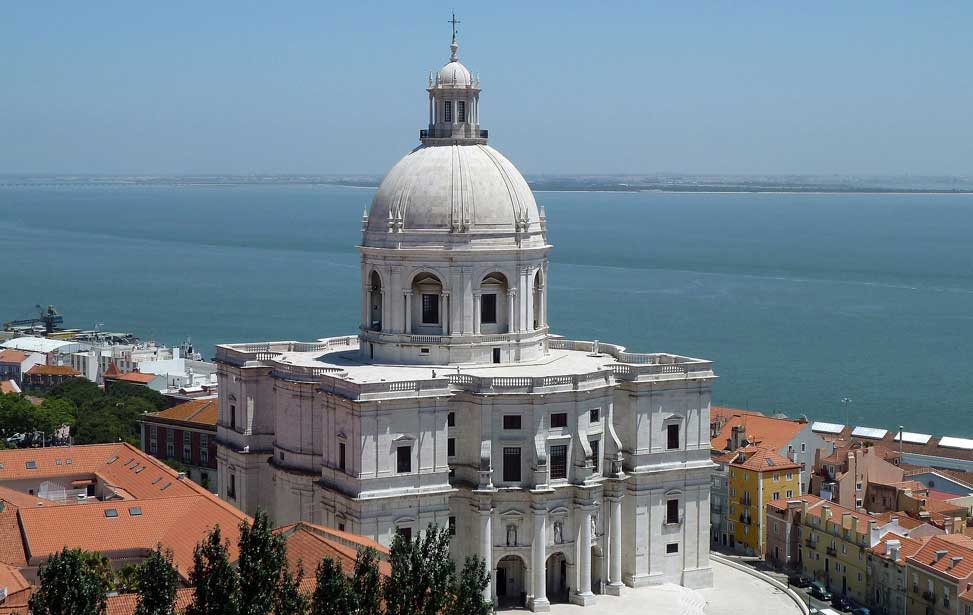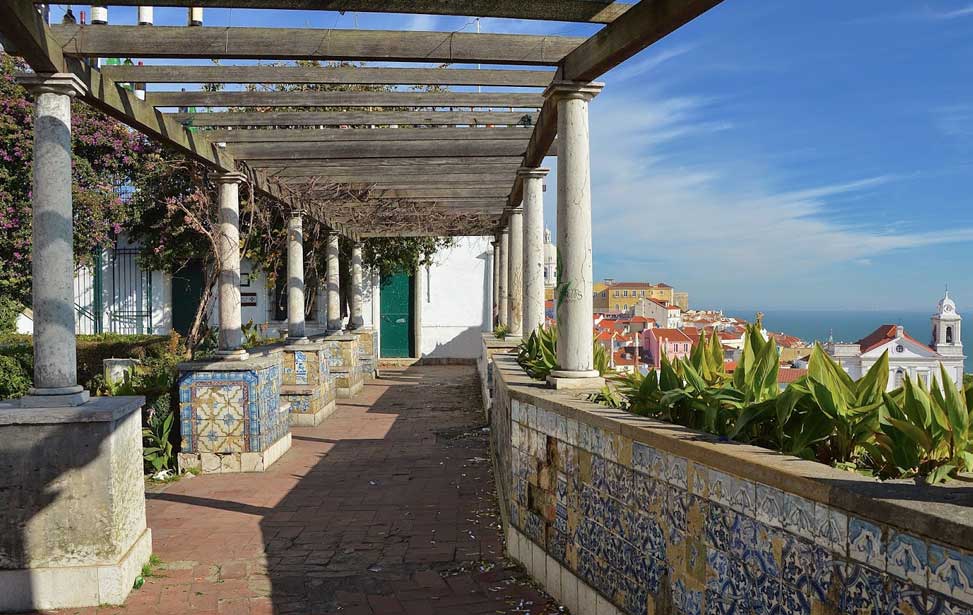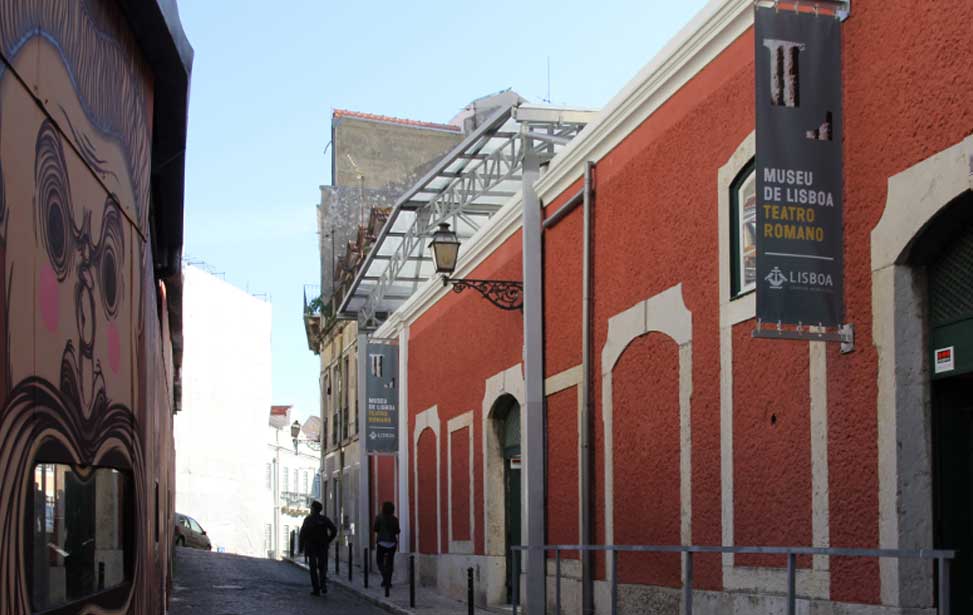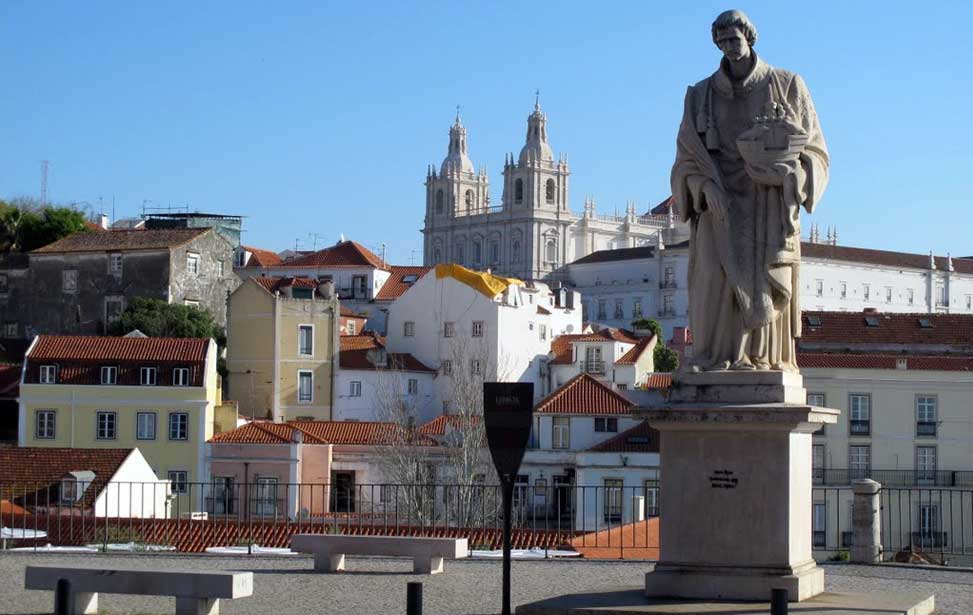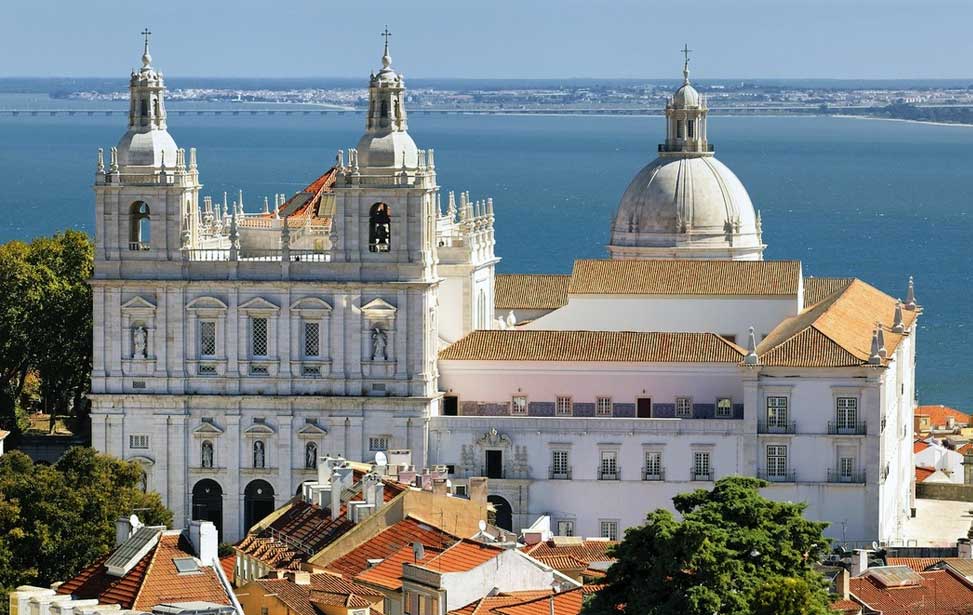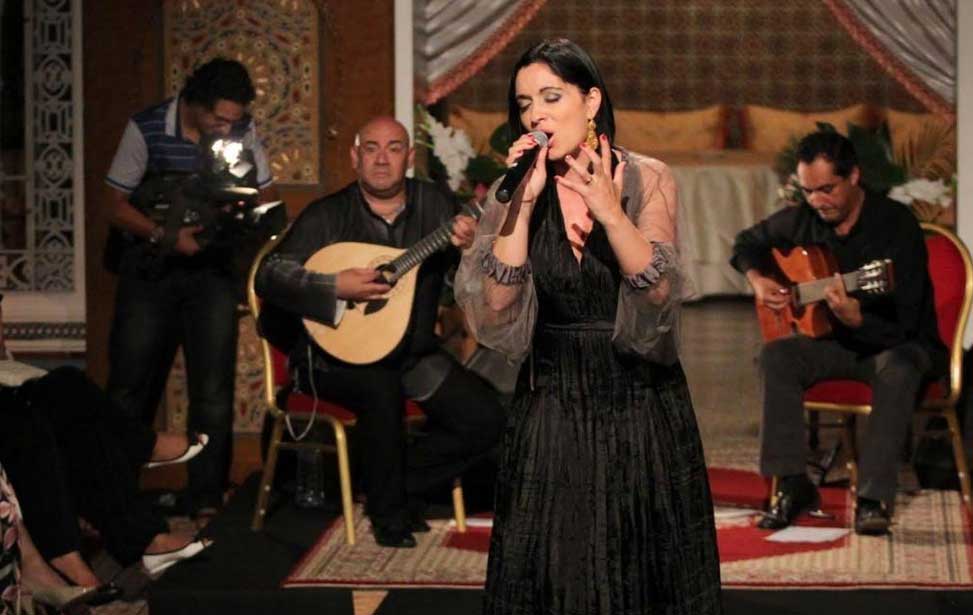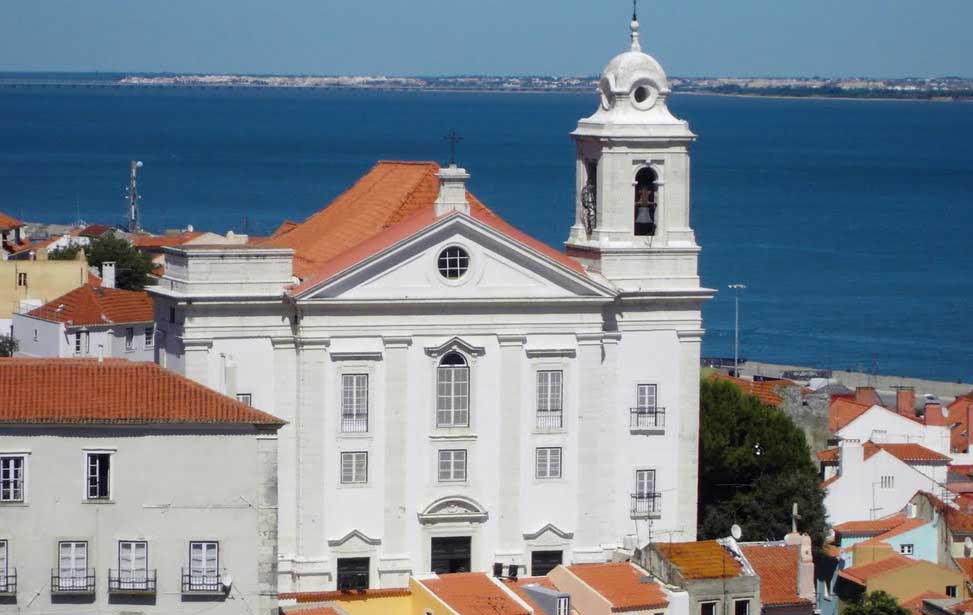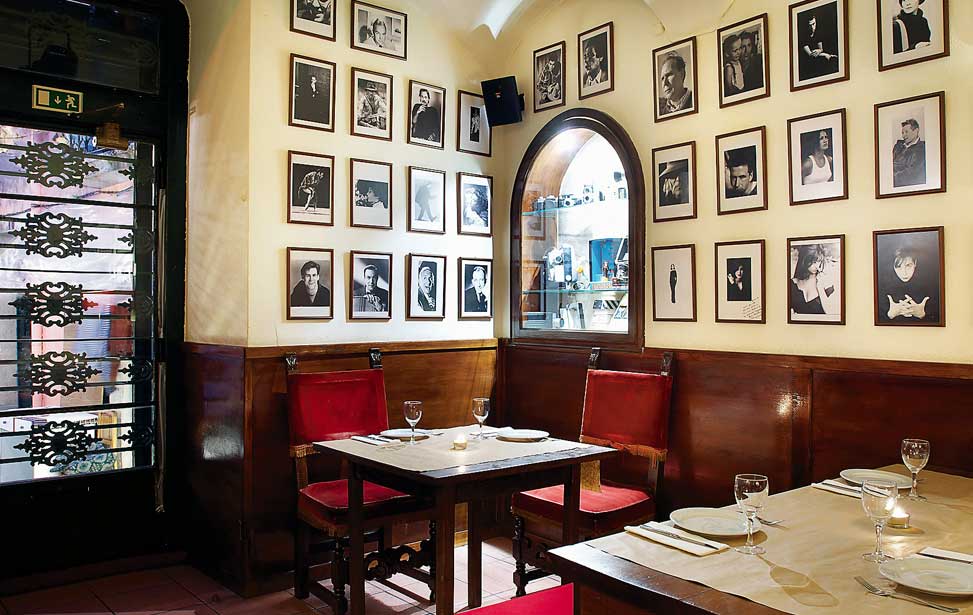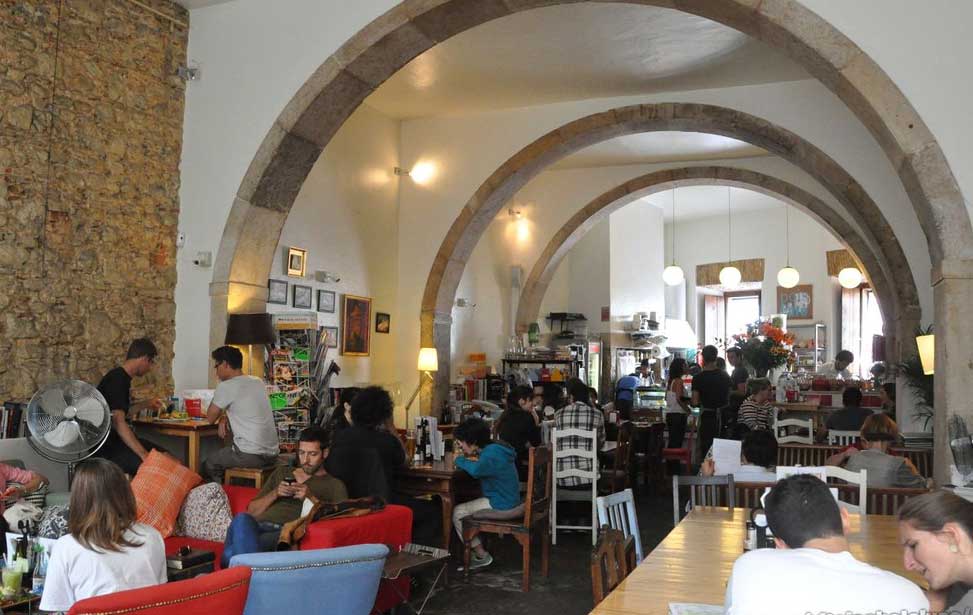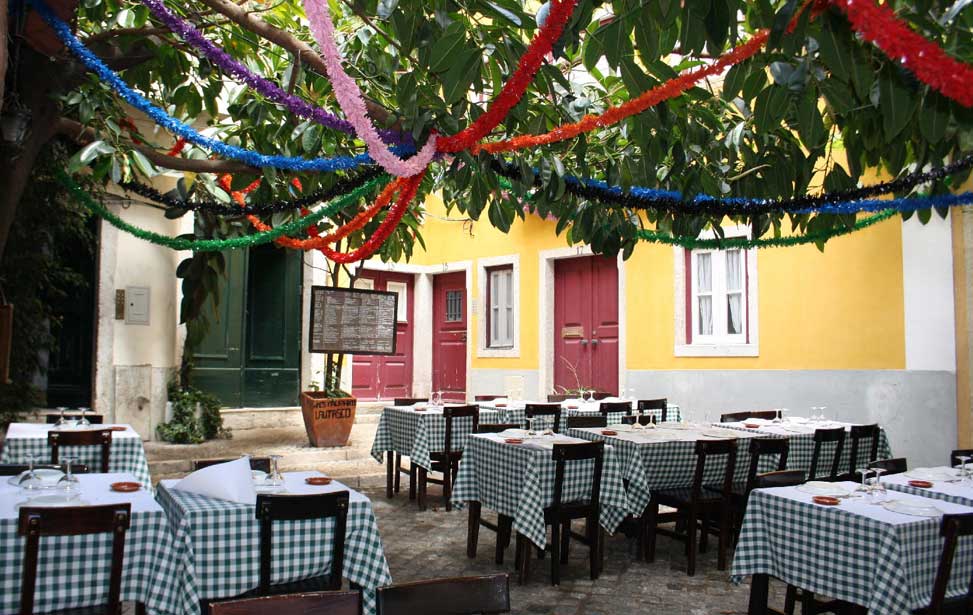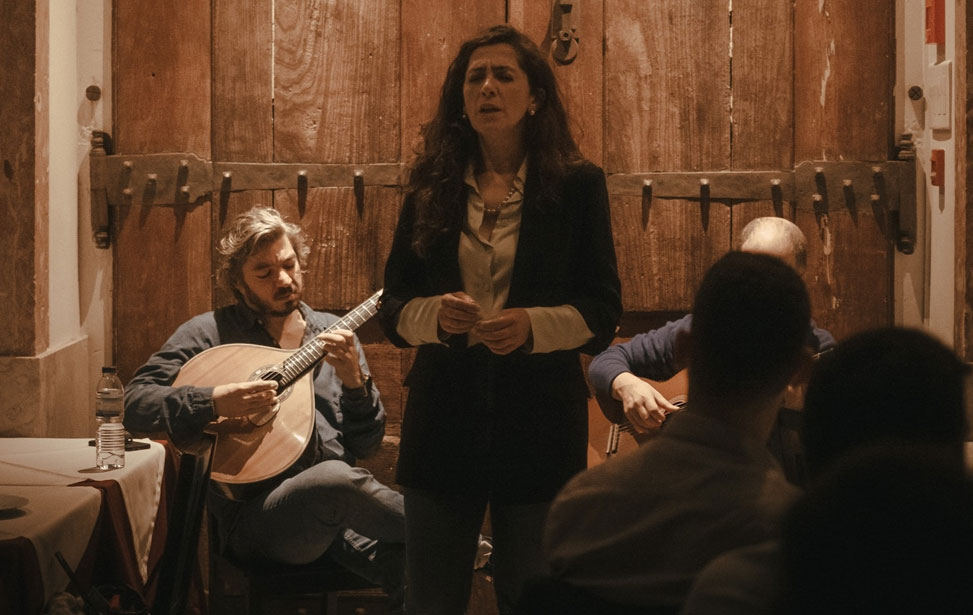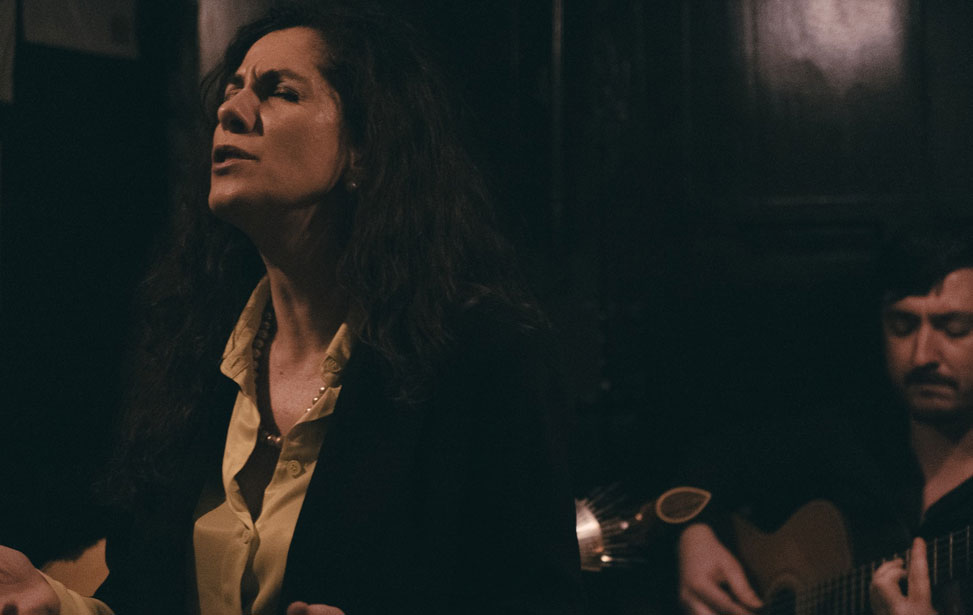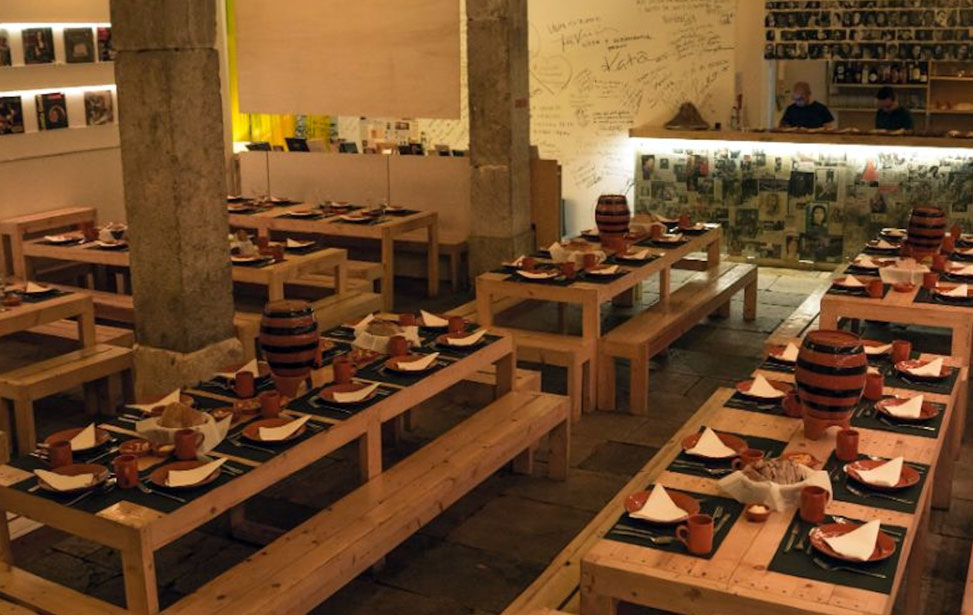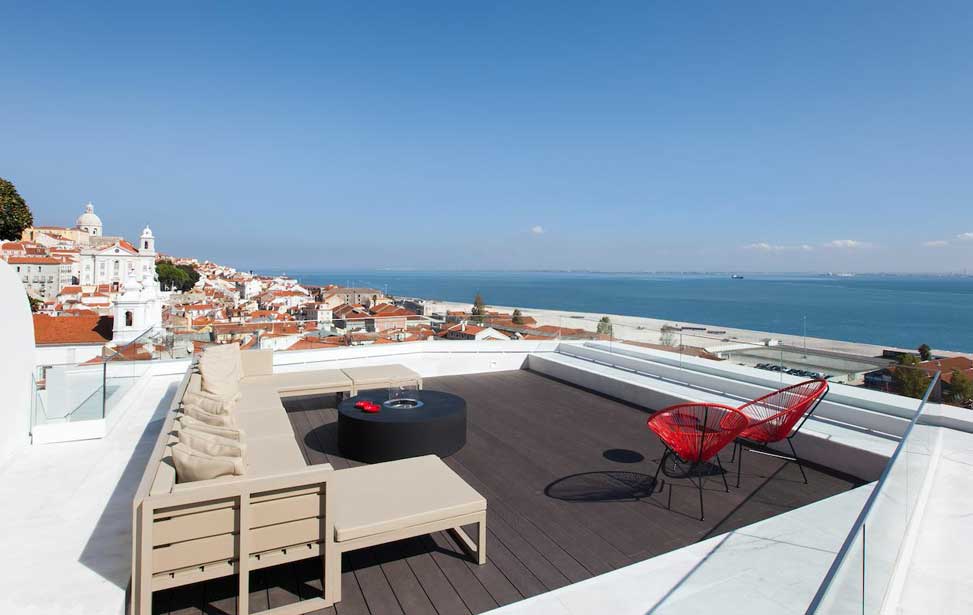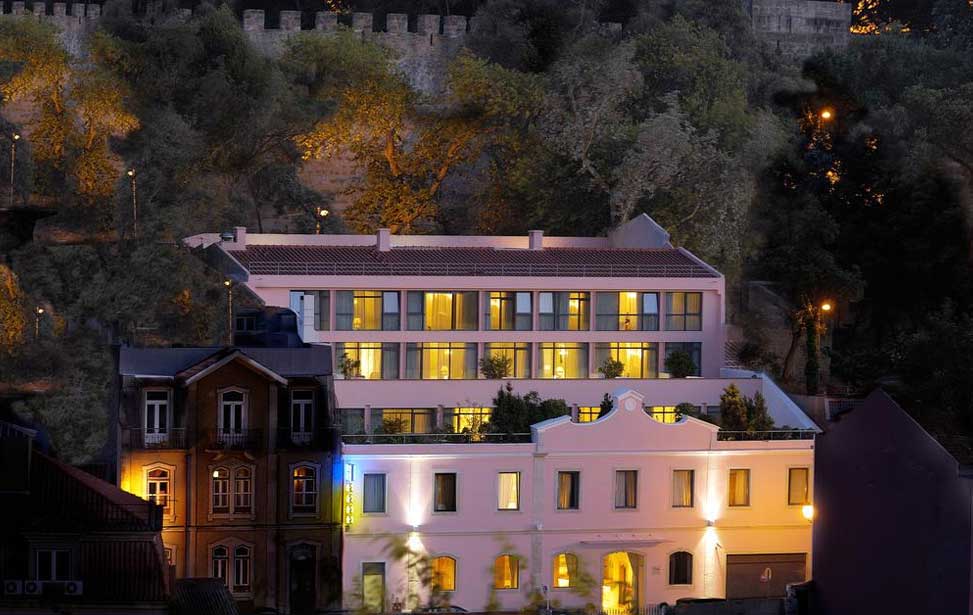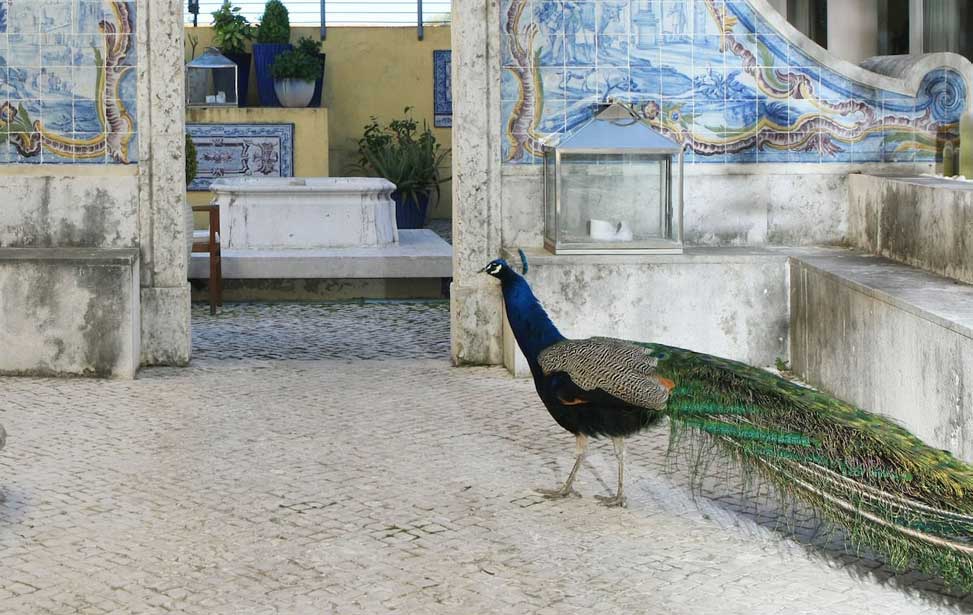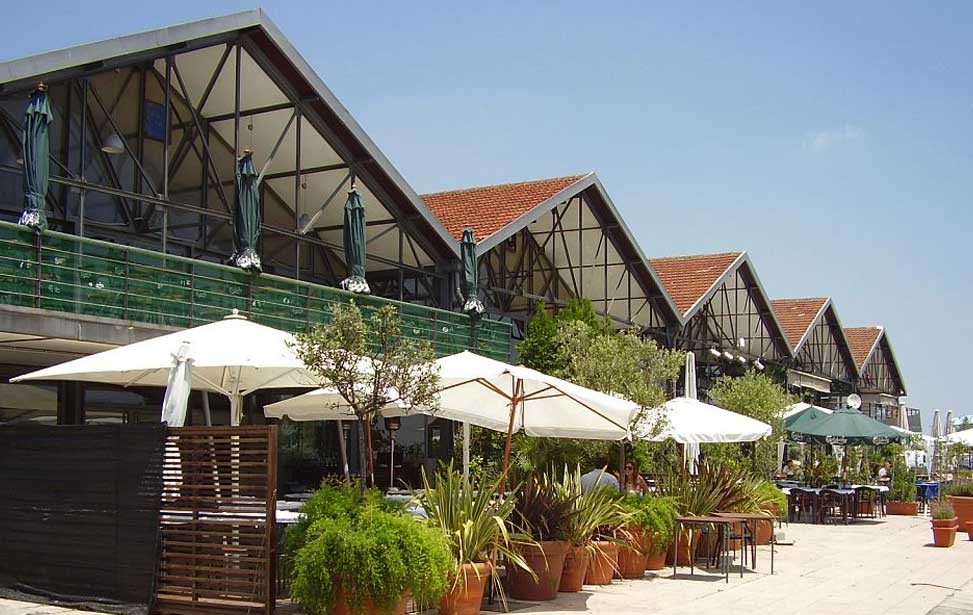ALFAMA
Lisbon's oldest district lies on the hill between the Castle and the river. It survived the devastating earthquake of 1755 relatively unscathed due to the firm bedrock on which it sits. The quarter's labyrinth of meandering narrow streets, alleyways and steep flights of steps retain an ancient street plan. Some of the buildings still stand on foundations dating from the times of the Visigoths. It was the Arabs who founded the hodgepodge layout of the district and awarded it the name "Al-hamma", meaning fountains or baths. When designing a replacement Baixa district following the 1755 earthquake Marques de Pombal based it on a geometric grid system. He is reputed to have said when looking upon the Alfama that Lisbon could really do with a second earthquake.
Today it's the old worldly charm of the Alfama that draws the visitors. The best way to experience this district is to get lost (which isn't too difficult), amongst the narrow cobbled, mainly traffic-free streets. Meander underneath hung washing and small archways, take in the sounds of canaries singing from their cages, marvel at the numerous flower pots which compensate for the lack of greenery. As you wander, you're sure to encounter a small square or a terrace (miradouro) from which to admire the city, a Fado bar from which the mournful music emanates and smells of grilled fish or meat cooking. On a cautionary note, be mindful of your wallet and camera. That said, the Alfama offers a glimpse into the past and an old-world cultural experience. Our sister website MADABOUTLISBON.COM will guide you there and introduce you to the best places to see and top things to do. | www.madaboutlisbon.com





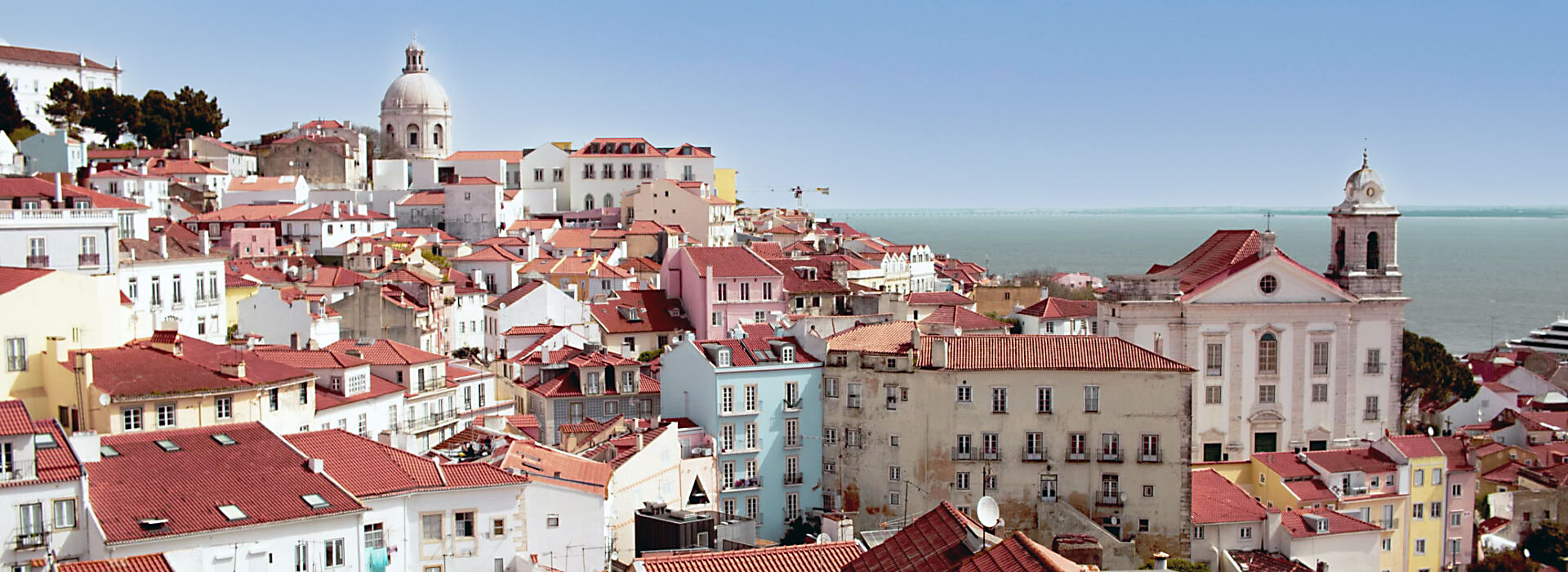


 TOP ATTRACTIONS OF ALFAMA
TOP ATTRACTIONS OF ALFAMA